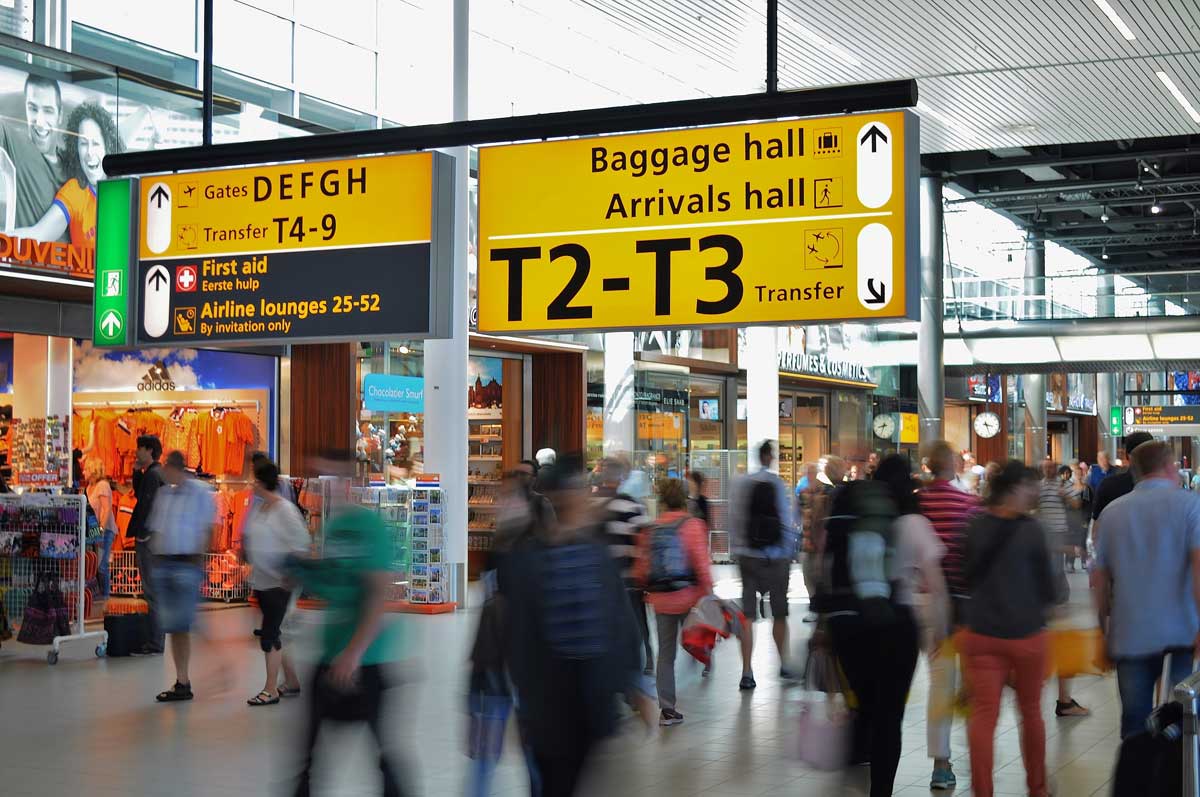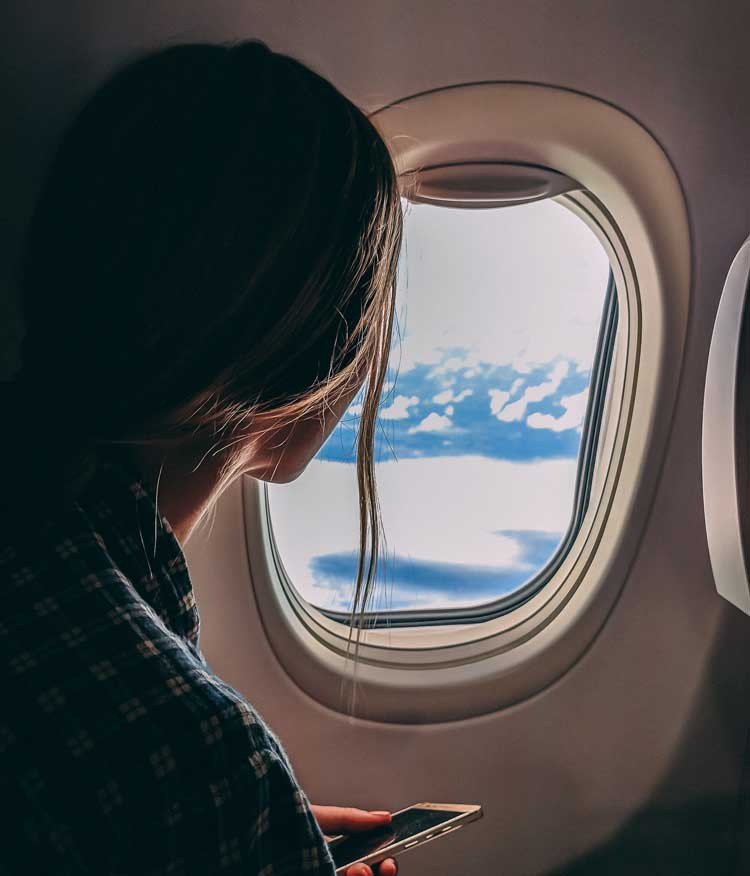
There are many articles, websites and blog posts that offer tips for staying healthy while traveling in the face of ever-present risks of MERS, norovirus, SARS and, most recently, COVID19 (novel coronavirus). Travel recommendations related to coronavirus are constantly changing.
Just this week, the World Health Organization (WHO) declared coronavirus a pandemic, and the CDC has recommended that Americans not take cruises for the time being, especially if you are elderly or have underlying health conditions.
Other than being pragmatic when selecting your travel itinerary, modes of travel deserve special attention. Headlines about 2019 novel coronavirus are unsettling, but it helps to stay informed.
Travel providers and destinations are reacting in different ways. Some cruise lines are refusing to book passengers who have visited or passed through China within the last few months – thus minimizing the risk of exposure and the need for quarantine.
In many cases, flights to China have been canceled. Some countries, like Israel, have implemented a 14-day quarantine for new arrivals.
Check Each Destination’s Recent Travel Policies
One important step you can take is to check countries’ policies on controlling the spread of the virus. Before booking, ask your travel agent or travel broker about newly implemented policies.
Also, check out each destination’s policies to control and counter the spread of the virus. It’s not paranoia – just common sense – and if a bit of pragmatism can prevent expensive travel from turning disastrous.
 Travel Safety Starts with You
Travel Safety Starts with You
Personal sanitation and hygiene are essential and cannot be stressed enough. When traveling, be extremely careful about what you touch.
Be aware of handgrips and rails in buses, trams, shuttles, trolleys, taxis, stairways, escalators and elevators.
Turn away from strangers who are coughing or displaying signs of the cold or flu. Try to avoid touching counters at ticket stands, information booths, security screening corridors, waiting rooms and lounges.
 Wash Your Hands
Wash Your Hands
Wash your hands for at least 20 seconds (about the length of time it takes to hum “Happy Birthday to You”) frequently. If washing up in a public washroom, use a paper towel to turn off the tap, and more toweling for the doorknob while exiting. Apply hand sanitizer often, and liberally.
Avoid Touching Your Face
Avoid touching your nose, mouth, eyes – in fact, avoid touching your face entirely. This is not as easy as you might think. Practice by rubbing some really hot hot-sauce, or capsaicin oil on your fingertips.
 If you wind up with smarting eyes, stinging nostrils or burning sensations at the corners of your mouth, you’ll know that you are not there yet. Don’t go out of your way to appear unsociable or rude, but try to at least keep three feet of distance between yourself and strangers. Sometimes this is simply not possible but do what you can.
If you wind up with smarting eyes, stinging nostrils or burning sensations at the corners of your mouth, you’ll know that you are not there yet. Don’t go out of your way to appear unsociable or rude, but try to at least keep three feet of distance between yourself and strangers. Sometimes this is simply not possible but do what you can.
If seated or standing next to someone who is coughing or displaying cold or flu symptoms, inconspicuously but determinedly move away.
Viruses are spread by suspended droplets in the air you breathe and coating of the surfaces that you touch. A bit of distance and frequent use of handy wipes or sanitizers can make all the difference.
 Other Travel Safety Tips to Consider
Other Travel Safety Tips to Consider
Lastly, don’t eat raw or undercooked meat, poultry or fish when abroad – certainly when traveling in possibly compromised environs and no matter how tempting…do not touch stray animals.
You have a right to enjoy yourself, and meeting new people is a big part of travel. While I would avoid “cheek kissing” or bear-hug embrazos, you can still shake hands with abandon (while inconspicuously applying hand sanitizer when you can).
You can increase your distance without offense with the old “left hand on the shoulder while shaking hands with the right” or even “left hand above the elbow while shaking hands with the right.” It may take a bit of practice to make these techniques seem spontaneous.

Consult your physician before traveling. If all or most “hacks” for avoiding or surviving respiratory viruses seem too passive, consult your physician before traveling. Tamiflu is available by prescription and can prevent or shorten the effects of many influenza viruses. However, Tamiflu has not been proven effective against this latest pox.
On the other hand, even if it may not protect against novel coronavirus, many forms of influenza are still out there. Be proactive – visit your doctor or healthcare provider – explain where, when and how you’ll be traveling, and ask for a battery of prophylactic vaccinations or prescriptions.
Many authorities believe that chronic stress can undermine and weaken the immune system. The unique stresses associated with travel can be managed. Try not to over-pack and eschew over-weight luggage. Pad your itinerary to allow for missed connections.
Public restrooms can be magnets for sick and ill travelers but are difficult to avoid when in transit. Don’t obsess over the risks, just exercise calm caution. Hydrate, try to take it easy and sleep when you can.
Against the possibility that all your efforts prove inadequate, travel insurance – specifically travel insurance that incorporates medical evacuation and hospital stays – is important. It can be expensive but is essential if the worst happens and should be part of every traveler’s preparedness/emergency response plan.
Mike Howard grew up in a small west coast Norwegian fishing community. Extensive travel and a sequence of careers provided the courage and leisure to explore writing as a means of keeping an adequate supply of lefse (traditional Norwegian flatbread) and aquavit.
- How to Get Around in Sydney: A Local’s Guide to Traveling Around Sydney - April 24, 2024
- The Low-Key Magic of Ghent, Belgium - April 22, 2024
- Discover the Hidden Charm of Extremadura in Spain - April 20, 2024

 Travel Safety Starts with You
Travel Safety Starts with You  Wash Your Hands
Wash Your Hands Other Travel Safety Tips to Consider
Other Travel Safety Tips to Consider